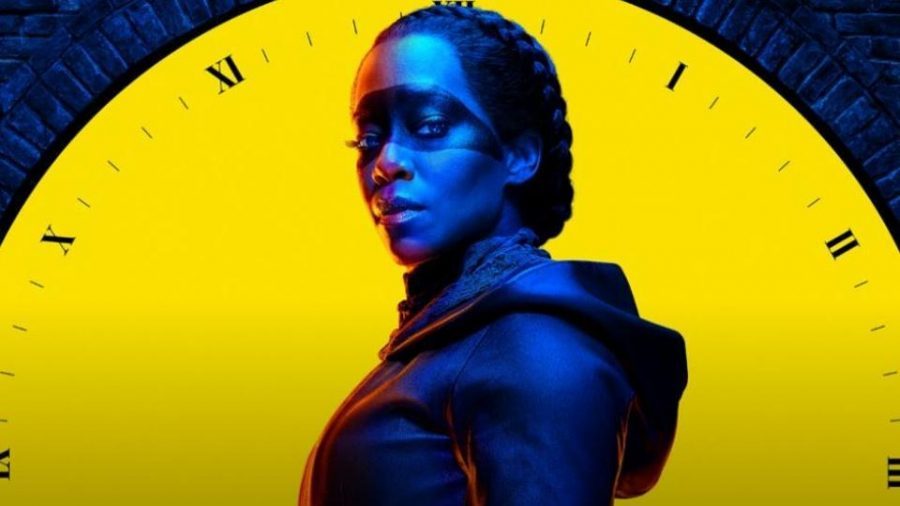Superheroes get philosophical in HBO’s adaptation of the acclaimed graphic novel…
Crafted by writer Alan Moore and artist Dave Gibbons in the latter half of the eighties, the gritty superhero thriller Watchmen was always ahead of its time and set the tone for an entire generation of comics that followed. Over three decades later, with blockbusters like Avengers: Endgame bringing superheroes to the big screen and seemingly stretching the scale of these stories to their limit, some creators have stepped up to take the caped crime-fighters in a more mature and introspective direction.
Rather than retreading the same ground as the 2009 film and adapting the comic book a second time, show-runner Damon Lindelof (Lost) has left Moore and Gibbons’ original story untouched, instead jumping ahead 30 years to provide a pseudo-sequel that tackles the ever-complicated issues of today. HBO’s Watchmen is told from the perspective of masked cop Angela Abar (Regina King), who patrols the streets under the guise of “Sister Night” to protect her family from the growing threat of white supremacist terrorists.
This intricate, borderline over-ambitious saga dips in and out of the source material at will – the first few of its nine parts focus on building a bizarre dystopian 2019 for Angela to inhabit, with any references to the comic being fleeting at best. As the story progresses, the links between old and new characters begin to emerge, but every answer yields a dozen more questions that create unease regarding whether Lindelof will be able to tie it all together by the end.
Luckily, these concerns are overridden by the sheer awe that each episode inspires. The highly-stylised cinematography, hair-raising music and powerful acting heighten the emotions brought about by each unsettling, thrilling, confusing and periodically hilarious scene, making each episode fly by at super speed. At times, some moments only narrowly avoid falling into cheesy territory, but for the most part the intensity is tightly held onto.
While it remains a beautifully-crafted series from start to finish, Watchmen peaks with its sixth and eight episodes. The former, titled “This Extraordinary Being”, is a striking film noir-style origin story set in 1938 that uses a single shot for each scene, and an innovative dream-like set design that represents the way a story is told through the human memory. As a largely standalone episode, there’s even a case to be made that it’s the best superhero “movie” of the year.
“A God Walks Into Abar”, the eight and penultimate episode, similarly plays with the concept of memory by borrowing one of the comic’s best storytelling devices (and characters) to arrange a vivid non-linear ballad of love, revelation and tragedy. The finale doesn’t quite match the narrative or artistic quality of these two, but still slots almost all of the puzzle pieces together in a very satisfying way.
Watchmen concludes with a frustratingly excellent cliffhanger that leaves the audience with a lot to reflect on. This doesn’t necessarily tease a second season, as there are currently no plans for one – rather, it echoes the open-ended feel of the book by letting viewers explore the possibilities with their own imagination.
With all the comparisons to the graphic novel, it’s open to debate how strongly this HBO series can stand on its own two feet. Reading the book beforehand is a smart move to equip fans with the knowledge to pick up on some of the story clues, but if you don’t feel like diving into the 448-page comic before watching, you will after.
Damon Lindelof’s take on the world of Watchmen may be as cynical of a glance at current issues and the scars of the past as its predecessor, but it’s still very much forward-thinking in every sense. Innovative, complex and moving, this is a late contender for one of the best shows of the decade, and quite possibly the greatest superhero TV series ever made.
By Jamie Morris
Feature image credit: HBO

